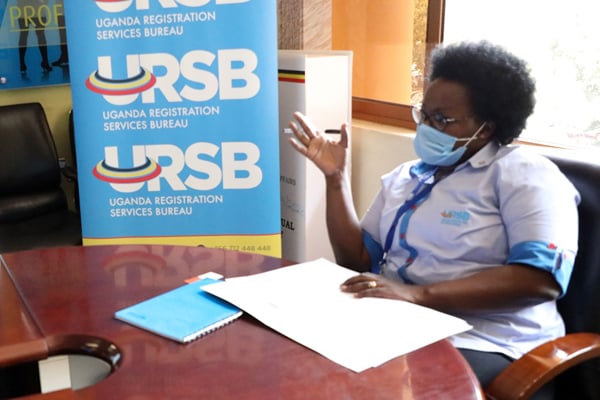
Prosper
Prime
Unmasking the secrecy behind shell companies
What you need to know:
Beneficial owners’ information helps to know the ultimate owners behind a certain investment or transaction; thus fighting financial secrecy.
Identifying the real person that beneficially owns a company or corporate structure is important for Uganda in the fight against Illicit Financial Flows (IFFs) such as money laundering, tax evasion, and corruption. According to Global Financial Integrity (GFI), in 2005, Uganda, owing to corruption, lost Shs65.8b, money meant to fight against AIDS, malaria and tuberculosis. So, having beneficial information helps in creating more financial transparency. That calls for having a central beneficial ownership registry.
Uganda is a signatory to the Multilateral Convention on Mutual Administrative Assistance on Tax Matters, thus committed to implement the International Standard for the Automatic Exchange of Financial Account Information in Tax Matters (AEOI) by 2023 and domestic law has been revised to enable the Uganda Revenue Authority (URA) to facilitate the automatic exchange of information.
“Access to information on Beneficial Owners is key to fully realising the objective of the exchange of information framework of curbing tax avoidance and evasion. This explains why Uganda has sought to define BO through a series of legislative changes, with each change aiming to provide more clarity.”
Beneficial ownership registry
In instances of not having a beneficial ownership registry, Grace Namugambe, the programme officer, financing for development/tax justice at SEATINI Uganda, says that allows for companies to register in tax havens or countries with whom Uganda has a Double Tax Agreement.
“Consequently, they benefit even in instances when they do not deserve to,” she adds.
Beneficial owners’ information helps to know who is behind a certain investment or transaction.
“It spells out the actual person that benefits and puts the money accrued into their pocket. Previously, people have been using the corporate structures to hide who the actual company owner is making it impossible for the government to know the final beneficiary,” Mr Moses Kaggwa, the commissioner in the Ministry of Finance, says.
That also helps to combat white collar crime (crime committed by people using unlikely means such as a briefcase company) that could come out of it.
For instance, in Trinidad and Tobago, the Beneficial Ownership Registry offers a free, public repository of key information on oil, gas and mining companies operating in Trinidad and Tobago which voluntarily report to the Trinidad and Tobago Extractive Industries Transparency Initiative (TTEITI).
Besides general company information, it is required that information about the beneficial owner will be needed in line with the amended laws.
“It has been mostly foreign owned companies that invest here without disclosing who their actual owners are but have companies as shareholders domiciled in various parts of the country.
Going forward, as they register to work here, they need to disclose the individuals behind the company which will be captured in the registry,” Mr Kaggwa says.
Benefits of registry
The information in this registry will help the government and Civil Society Organisations (CSOs) to understand various strategies companies use to conceal information, more so the wrong ones.
“The information is critical for solving money laundering cases because government then can follow the money trail helping it to establish the origin of the money used to establish the company. Then we can easily solve puzzles of people who out of the blue start businesses without trace of a legitimate money source,” Regina Navuga, the programme officer in charge of financing for development programme at SEATINI Uganda, says.
Revenue will also be got easily because with such information, the beneficial owner can now be taxed.
“Previously, only the company was taxed because the person receiving the money from its activities was unknown. That meant revenue loss,” Mr Kaggwa says.
Navuga adds that BO information also shines a light on who has the ultimate control to make decisions in the company. Some of these are politically exposed persons (PEPs) and with the information, it is easy to establish if those benefiting are not directly linked to those supposedly in control.
Having a registry will ease cleaning up the procurement system because oftentimes, people with insider information, such as a procurement officer have fronted companies. These take advantage of that thus failing the screening process and the fairness it must exhibit.
“With the beneficial owners’ registry, public servants, legislators, politicians and any other person of influence that have been engaged in this vice will now be easier to curb,” Mr Kaggwa says.
Namugambe adds that the registry helps in dealing with issues such as tax avoidance and evasion with both local and foreign companies which is important in the procurement process.
“Then it is easy to establish who is actually benefitting from the big tenders, and investment projects in the country,” she says.
BO information also helps to determine which sector is the most prone to be used to take out the money both internally and externally, through government coffers.
It is also a mobilisation tool because Navuga says people are urged to be on the lookout for who is owning the different properties, who is abusing the system hence have local intelligence.
Progress in registry creation
Under the Financial Action Task Force (FATF), of which Uganda is a member, it was recommended that countries should follow a multi-pronged approach to ensure that the beneficial ownership of a company can be determined in a timely manner by a competent authority.
FATF says member countries should require adequate, accurate and up-to-date information on the beneficial ownership of legal persons to be held by a public authority or body (for example a tax authority, FIU, company registry, or beneficial ownership registry).
The Uganda Extractive Industries Transparency Initiative secretariat is required to Oversee the development of a beneficial ownership register for Uganda as well as report on its progress.





